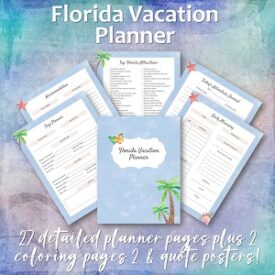 Summer activities mean time spent outdoors. And you know spending time outdoors means the possibility of bug bites.
Summer activities mean time spent outdoors. And you know spending time outdoors means the possibility of bug bites.
You want to protect your child from bugs, but you don’t want to use sprays that could be dangerous. What are your options?
Even if your child is outside wearing long-sleeved shirts and long pants, there are no guarantees mosquitoes won’t bite.
In fact, mosquitoes can bite right through clothing. It’s important to teach your children not to swat at insects that sting or bite.
Bug sprays have used DEET (N,N-diethyl-m-toluamide) for years. This chemical compound, approved and endorsed by the Centers for Disease Control and Prevention (CDC), is effective for repelling insects.
However, there has been some concern about using DEET on children. DEET-based products provide protection for two to ten hours.
If you cannot find an alternative, be very careful when applying DEET products to children; be sure to use the lowest possible dose, 10 percent DEET. DEET should not be reapplied and should not be applied to children younger than two months old according to The American Academy of Pediatrics (AAP).
One alternative to bug repellents with DEET are products made with Picaridin. Picaridin lasts for four to eight hours, is recommended by the CDC, and has been in use in Europe and Australia since the 1990s. It is odorless, doesn’t damage synthetic materials, and feels light. Like DEET products, it is not recommended for use on babies younger than two months.
Products made with Lemon Eucalyptus can also be found as an alternative to those made with DEET. These products are not recommended for children younger than the age of three, however. Lemon Eucalyptus provides six hours of bug-repellent protection. As the only natural plant-based protection, you may want to consider using this type of product if you don’t have children younger than three in your family.
There are other DEET-free products on the market, but you’ll want to read the labels closely to ensure you’re getting a true DEET-free product. One product, Bug Band, comes in spray lotion, towelettes, and a glow-in-the-dark bracelet. Ingredients come from geranium, rosemary, soybean, and mint oils and extracts. They purportedly are water resistant, reusable, and work for 120 hours.
The American Academy of Dermatology does not recommend the use of hybrid products that contain both a sunscreen and bug repellent. They reason that sunscreen should be reapplied every two hours whereas but repellent won’t need to be reapplied for four more hours. Combining the two products may also reduce how effective the sunscreen is.
Children are going to spend time outside during the summer months. If they’re outside, they will most likely face being bitten or stung by bugs. Using a bug repellent is a great way to protect your child from bugs. Your only other choice may be keeping them indoors, and even that isn’t a guarantee that they’ll be bug-bite free.










